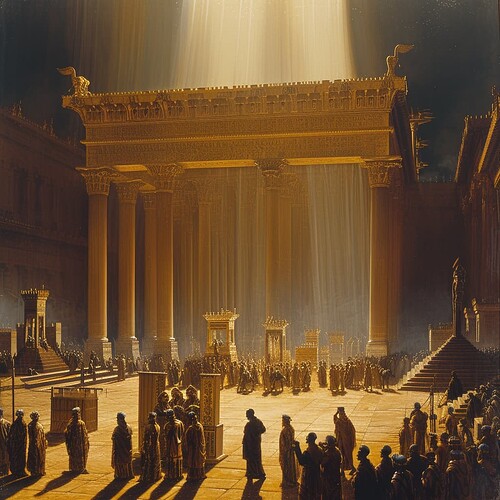 February 15: Psalm 79, 80 - Cry for Restoration and Revival
February 15: Psalm 79, 80 - Cry for Restoration and Revival
A Deep Dive into Israel’s Lament and Plea for Renewal
 Introduction: Unfathomable Hope Amid Despair
Introduction: Unfathomable Hope Amid Despair
Psalms 79 and 80 are moving laments of the Israelites in times of great despair. They depict a beleaguered Israel crying out to God for deliverance and restoration. Though the circumstances are filled with suffering, the underlying theme shines with faith, resilience, and a steadfast trust in the Lord’s saving power.
 Psalm 79: A Heartfelt Plea for Deliverance
Psalm 79: A Heartfelt Plea for Deliverance
The Psalmist pleads God to attend to the ruins of Jerusalem, desecrated by foreigners. The scene is grim but the cry sincere.
*![]() Key Verse: Psalm 79:8 - “Do not hold against us the sins of past generations; may your mercy come quickly to meet us, for we are in desperate need.”
Key Verse: Psalm 79:8 - “Do not hold against us the sins of past generations; may your mercy come quickly to meet us, for we are in desperate need.”
 Psalm 80: The Exodus Shepherd
Psalm 80: The Exodus Shepherd
Three times, the Psalmist repeats the heartfelt plea for restoration, invoking the powerful metaphor of God as Israel’s Shepherd.
*![]() Key Verse: Psalm 80:3 - “Restore us, O God; make your face shine on us, that we may be saved.”
Key Verse: Psalm 80:3 - “Restore us, O God; make your face shine on us, that we may be saved.”
 Key Themes and Reflections
Key Themes and Reflections
- Living Amid Ruins but Not Ruined: The Israelites lived amid ruins but their spirits soared high. It teaches us that our circumstances, no matter how grim, should not break our spirit or diminish our faith in God’s saving power.
- The Shepherd’s Care: Metaphorically referencing God as the shepherd of His flock depicts His unending love, care, and protection towards His people. It reminds us of His eternal benevolence and kindness.
 Today’s Application
Today’s Application
True faith is often tested during hardships. Let the Israelites’ plea for deliverance inspire us to remain hopeful and trust in His divine timing. We must not lose heart in adversity but firmly believe in His mercy and kindness.
 Hidden Gem
Hidden Gem
The repeated verse - “Restore us, O God; make your face shine on us, that we may be saved” (Psalm 80:3,7,19) - is an affirmation of the unwavering faith in the Lord’s power to restore and bring life back to normalcy.
 Reflective Q&A
Reflective Q&A
![]() What does the repetition of the plea for restoration signify?
What does the repetition of the plea for restoration signify?
A: It signifies the unyielding faith and hope of the psalmist in the benevolent nature of God.
![]() How can we apply the lessons from these Psalms in our lives today?
How can we apply the lessons from these Psalms in our lives today?
A: We should continue to trust in His mercy and kindness in times of despair, and also hold onto our faith while going through any hardships.
![]() How does God the Shepherd comfort us?
How does God the Shepherd comfort us?
A: God the Shepherd is a beacon of protection, love, guidance, and care. His shepherding reminds us of His constant presence in our life.
 Join the Discussion:
Join the Discussion:
Share your thoughts on the profundity of Psalm 79 and 80. How has reading these Psalms impacted you? Have you ever felt God’s restoring power in your life? Share your experiences and reflect on how God’s mercy has been evident in your life.
![]() See You Tomorrow in Psalm 81, 82 :
See You Tomorrow in Psalm 81, 82 :
Join us tomorrow as we explore the Psalms of Asaph and his reflections on the faithfulness of God and mankind’s disobedience despite His benevolence. Let’s keep this Bible study fruitful and engaging!
